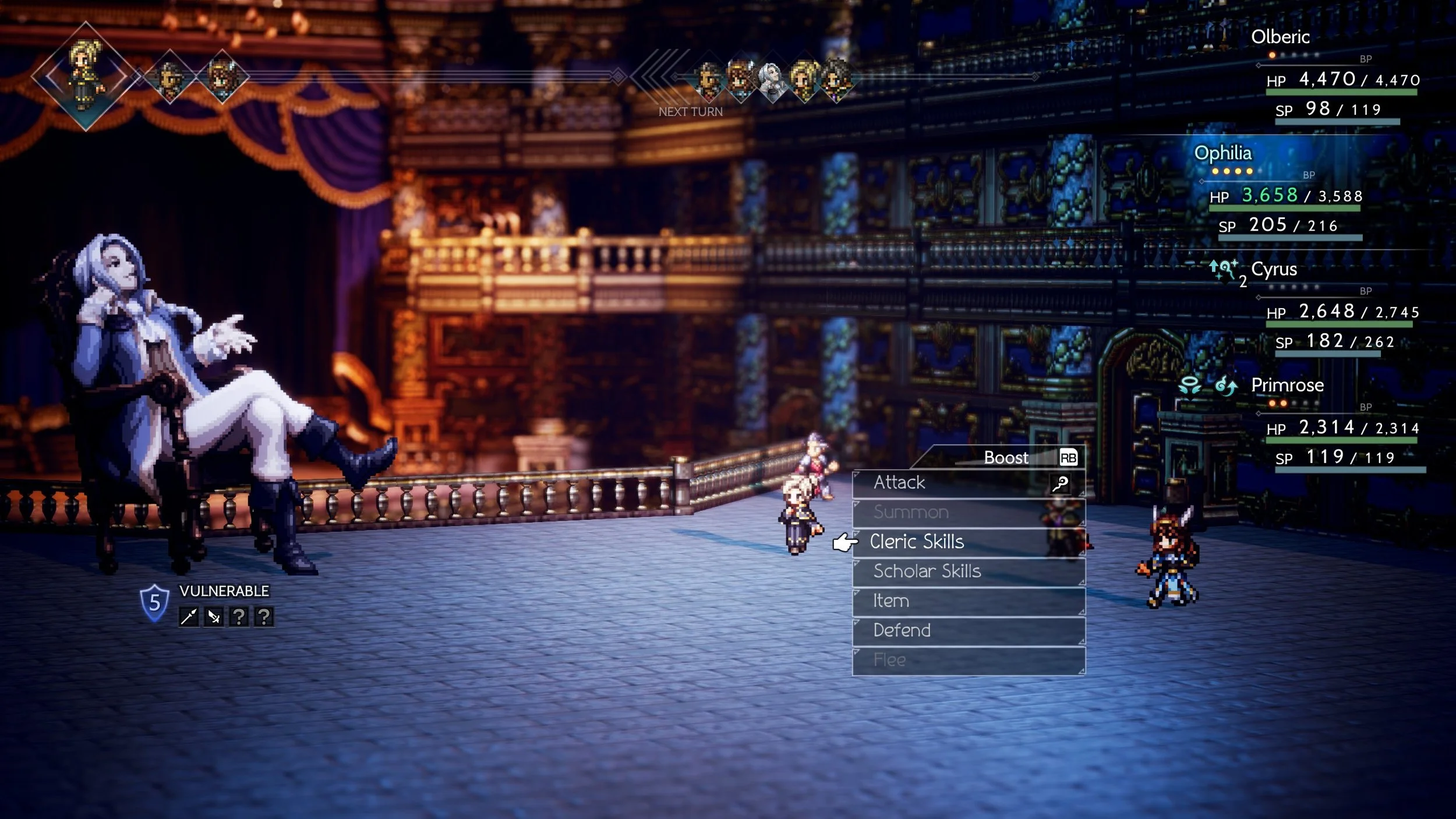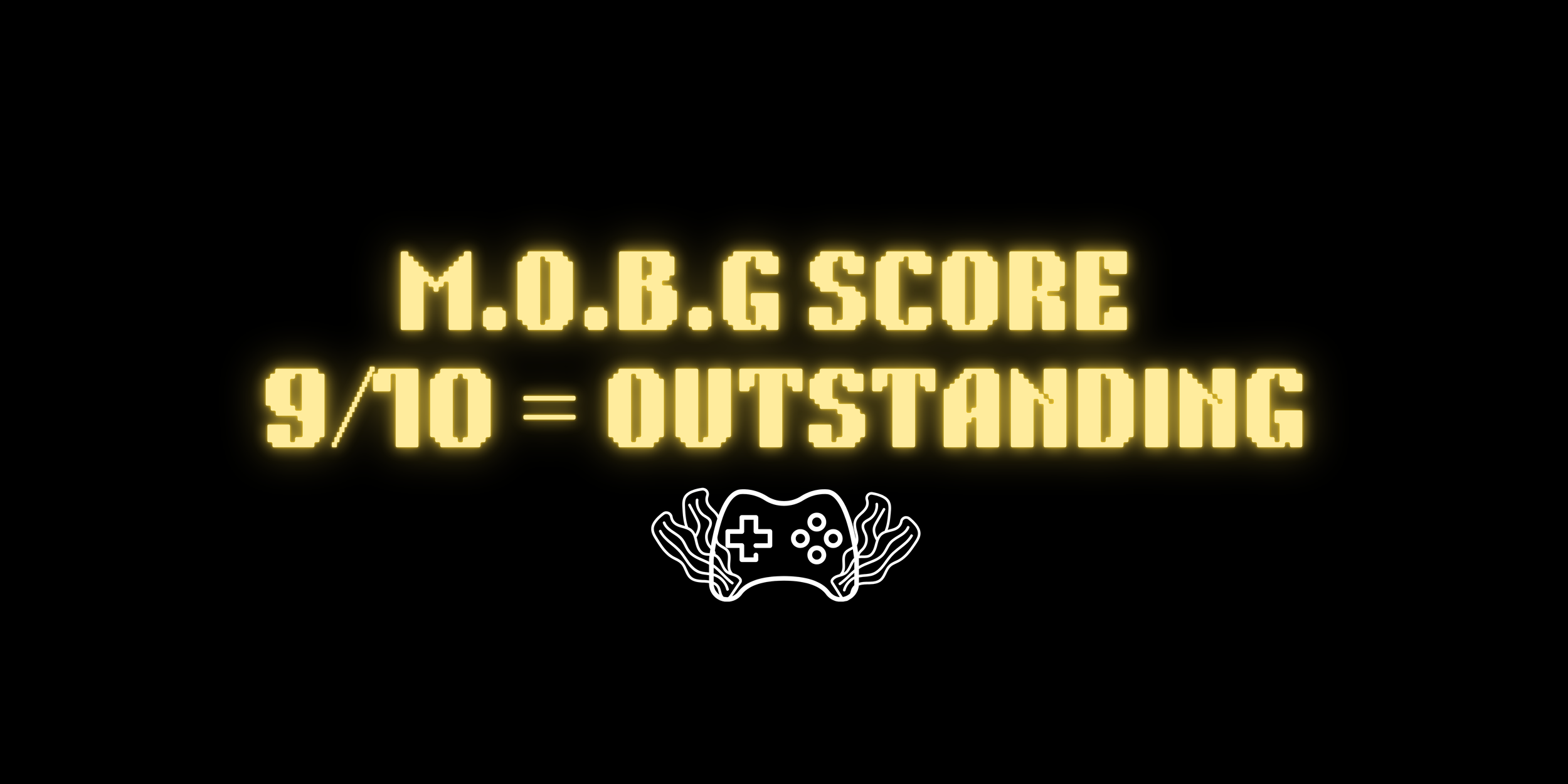octopath traveler review - The Turn-Based JRPG That Turned Me Into A Believer
Whenever I'm in the midst of playing a game that's capturing my full attention, I like to keep a Steam Deck game to have on the side for whenever I want a break from that main thing. Recently, I decided to go through my backlog and see what game I could slide into that side Steam Deck game slot, and sitting at the top of that pile was none other than Octopath Traveler. Initially, I had no intention of putting any significant number of hours into the game, let alone completing all eight stories. Boy, was I wrong about that, because not one hour into my play through did I realize I had a serious problem -- this game was going to take over my life completely. I became so captivated by Octopath's core elements that eventually, it would completely replace the main game I was playing at the time. Here are the 5 reasons why I absolutely adore Octopath Traveler.
It Has An Approachable, Yet Challenging Combat System
Before playing Octopath Traveler, I had very little experience with traditional turn-based combat. Therefore, my lack of history with this style of play had me worried that it would prevent me from fully enjoying the experience, but thankfully, Octopath welcomes players unfamiliar with the formula with open arms. My main party leader, and the character I began the game with, was Olberic -- who is best described as your traditional sword and board tank character. His early battles consisted of one-on-one duels with low-level townsfolk -- straightforward combat encounters designed to help familiarize the player with the feel and pacing of turn-based combat. Soon after, I was thrown into a boss encounter designed to test what I had learned. After conquering that first battle, I not only felt confident in my newly acquired understanding of turn-based combat, but I felt excited to explore the depths of its design.
Though Octopath starts players off with simple combat encounters in the beginning, they become incredibly challenging as you continue to play the game. As you make your way through the vast continent of Osterria, you'll encounter an impressively wide variety of enemies designed to test your combat strategies. To contend with this, Octopath hands you eight characters, each with their own unique fighting styles to consider as part of your strategy -- a wealth of choices that allows you to define your own unique combat approach. Taking its depth of strategic design even further are "secondary jobs", a multi-classing system that grants players the ability to assign their active party members with the abilities of those they have sitting on the sidelines, as well as secret, ultra-powerful classes that can be earned by completing hidden boss dungeons throughout the world. It's a system that not only solves the problem of needing to leave half of your entire party on the sidelines at all times, but it also adds a level of strategic depth that makes party composition feel joyfully endless, resulting in every combat encounter feeling engaging and exciting to play through.
Octopath's Unique Storytelling Structure
I play RPGs for the story, so coming into my playthrough of Octopath, I was excited to experience its daring storytelling structure for myself. As the name suggests, Octopath Traveler consists of eight stories starring eight different characters, but what I didn't expect was that none of its eight stories would actually intersect with one another. At first, it took some time to get used to this structure due to how jarring it felt, especially given that it essentially removed any potential through-line tying the characters together. However, as I continued to play the game, I came to appreciate how these stories were told. Each story trades the traditional approach of threading an entire party towards one shared goal for the intimacy of an isolated tale free to explore its distinct ideas without being bound to the wider themes of the overarching story. Octopath also uses a dialogue system called "travel banter", comprised of short cutscenes between characters designed to illustrate the bond of friendship that this style of game lends itself to, while also putting each of their distinct personality quirks on display. I felt that this system delivered a real breath of fresh air to the game, as it brought character relationships to life while offering interesting moments of reflection between story moments.
Though I didn't originally intend to in the beginning, I opted to complete all eight of Octopath's stories. However, despite each story having its own distinct kind of impact, one of them stood above the rest -- resonating with me on a deeper level than the others. Olberic's journey is one of grave loss, revenge, and finding purpose. One moment from his story that stood out to me the most occurs during the Victor's Hollow Tournament Arc in chapter 2. Before each battle, Olberic asks each of his opponents to share the purpose for why they swing their blades. Each opponent provides a compelling reason for their purpose, but none of them brings Olberic any closer to finding his as he had hoped they would. It's an emotional moment of introspection where we begin to understand that Olberic is more than just a thoughtless strong man hell-bent on blind revenge. He's a warrior whose great strength lies in the purpose for which he wields it, and without that purpose, his strength is hollow. This nuanced take on what it means to be strong deeply resonated with me, resulting in a story and character that I won't soon forget.
Octopath's Distinct HD2D Visual Art-style is Undeniable
A year before actually playing the game, I saw a gameplay trailer for Octopath on Steam that put its flashy HD2D visuals on full display, which is what compelled me to instantly wishlist it at the time. Having actually played the game now, I can see that what I saw in that initial gameplay trailer was just the tip of the iceberg. Combat is elevated to bombastic heights thanks to the visual fidelity that brings copious levels of pizzazz to each attack. For example, the Lux Congere magic spell presents like a spectacular light show of holy light, while the explosiveness of Winneheld's battle cry is amplified tenfold thanks to their crisp HD visuals -- just to name a few. The visual feast extends to the world as well, bringing each area to life in ways that feel distinct to this game. Walking through Saintsbridge, the realistically looking waterfall set against the traditional pixel-art of the bridge sitting above it provides a uniquely immersive experience. Similarly, open areas like the Sunshade Fesert, where the sand glistens with a sea of high-resolution sparkles make walking through it feel surreal and otherworldly.
Even After My 120-Hour Play-through, I'm Still Listening To Octopath's Music
When I finally got around to plucking Octopath out of my backlog, I jumped into the game with feverish excitement, pushing my way through opening menus to start the game as quickly as I could. However, I was halted in my tracks once the opening theme kicked in on the main menu screen. Its staccato strings drew my attention, followed by a glorious flute melody that would go on to fully captivate me. I sat there listening to this theme on repeat for five whole minutes before actually beginning my play-through, simply because it grabbed hold of me and wouldn't let go. I had a similar experience when jumping into combat for the first time hearing "Battle I", where its combination of bopping but tight drums and guitar and inspiriting string section sent tingles down my spine as I engaged in my first battle.
The beauty in Octopath Traveler's score lies in how deeply effective it is in bringing the game's pixel art stories to life. Whether it's a deeply painful moment of loss, a harrowing moment of self-realization, a happy moment of joyful discovery, or anything in between, composer Yasunori Nishiki's score beautifully captures the emotional nuances of each story event, no matter the size or importance. Even after having spent 120 hours in Octopath Traveler, I still find myself naturally drawn to listening to its music outside of the game -- and I suspect I'll be doing so for a long, long time.
Patrick Seitz's (Olberic) Vocal Performance Left Me In Shambles
Similarly to how Yasunori Nishiki's musical score brings Octopath's story events to life, so too does the game's incredible vocal performances. It's easy to feel the distinct differences in each character's personality in large part due to the voices that so brilliantly illustrate them. By now though, you may be sensing a pattern, because just as Olberic's story had a particularly profound impact on me, so too did Patrick Seitz's vocal performance portraying him. If you aren't familiar with Patrick Seitz, he's a seasoned voice actor most known for his English VA roles as Endeavor from My Hero Academia, Fabius from Monster Hunter Wilds, and many more. Despite initially hearing both of these voices while listening to Olberic, Seitz's distinct approach to this character made the comparison of those roles fade away. The distinctive low tone and growling timbre of his voice perfectly captures Olberic's character traits, making his moments of deep introspection and passionately charged speeches of nobility alike feel all the more impactful. By the end of Olberic's story, I was left reeling from the reality of knowing that I could never experience this vocal performance for the first time again.
The Verdict
Simply put, Octopath Traveler was an experience that handily exceeded my expectations. What began as a side game that I only intended to play for 20-30 hours on my Steam Deck turned into an all-consuming journey and one of my most memorable gaming adventures. Whether you're looking for moving stories, to experience amazing turn-based combat for the first or hundredth time, or for any reason in between, I am absolutely confident that Octopath Traveler will be worth your time. Though this game is steadfast in its formula, it doesn't punish you for not taking it for all its worth. If you want to jump in for 10-20 hours and call it a day after one story, then you'd be completely valid for doing so, especially given that the credits do technically roll after completing just one story. No matter your approach, Octopath is a game that WANTS you to experience it however you see fit, and for that reason, and in addition to the reasons listed above, I absolutely adore this game. Bring on Octopath Traveler 2!




